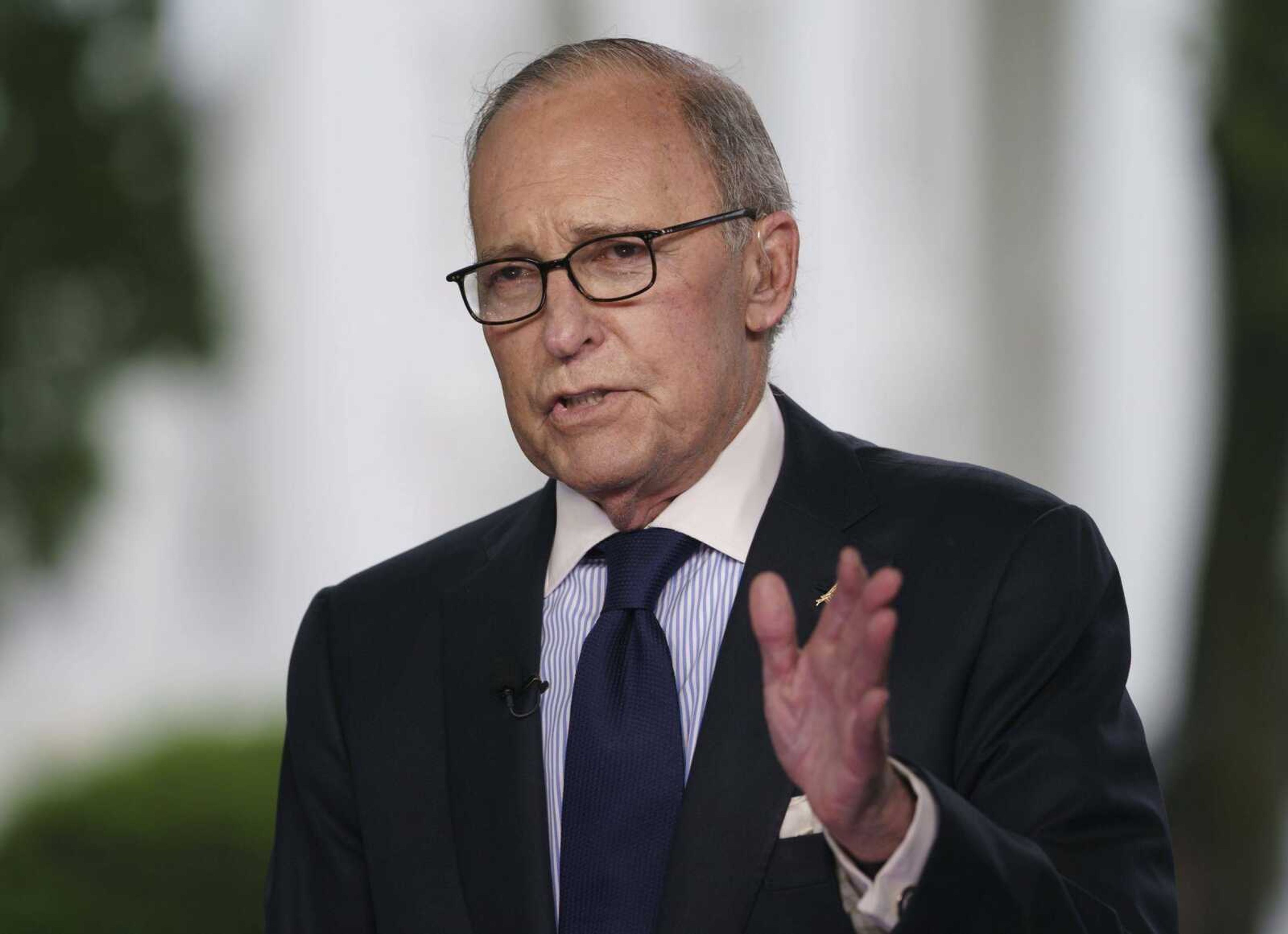Trump seeks separate talks with Canada, Mexico over NAFTA
WASHINGTON -- President Donald Trump couldn't get what he wanted from months of three-way trade talks with Canada and Mexico. So now his administration wants to pursue separate negotiations with the two U.S. neighbors to try to overhaul the 24-year-old North American Free Trade Agreement, which Trump has condemned as a job-killing disaster...
WASHINGTON -- President Donald Trump couldn't get what he wanted from months of three-way trade talks with Canada and Mexico.
So now his administration wants to pursue separate negotiations with the two U.S. neighbors to try to overhaul the 24-year-old North American Free Trade Agreement, which Trump has condemned as a job-killing disaster.
Trump's top economic adviser, Larry Kudlow, went on "Fox & Friends" Tuesday to convey the president's preference for dealing separately with Canada and Mexico. Kudlow said Trump doesn't plan to abandon NAFTA -- something the president has threatened since taking office -- but "is just going to try a different approach."
Yet it's far from clear separate discussions by the United States with Mexico and Canada could leave the three-nation NAFTA deal altered but intact.
"It's impossible to make sense of (Kudlow's) statements," said Michael Camunez, president of Monarch Global Strategies consultancy and a former U.S. Commerce Department official.
By saying there is no plan to leave NAFTA, "he's probably trying to keep the markets calm ... while we negotiate separate bilateral agreements."
Trade analysts said they were skeptical Canada and Mexico, angry the U.S. has slapped tariffs on their steel and aluminum, would be drawn into one-on-one negotiations to appease Washington.
"This divide-and-conquer strategy is not entirely unexpected, especially now that the three-way negotiating process seems to have hit a wall," said Mary Lovely, an economist at Syracuse University.
Trump has frequently expressed his preference for reaching agreements with other countries one at a time, rather than multilateral agreements such as NAFTA or a 12-country Asia-Pacific deal he abandoned upon taking office last year. Earlier this year, he nudged South Korea into making concessions and accepting changes to a six-year-old trade pact between the two countries.
"He's believed that bilaterals have always been better," Kudlow said, adding: "He hates large treaties. ... When you have to compromise with a whole bunch of countries, you get the worst of the deals. Why not try to get the best of the deals for the American people, the American workforce, the American economy and presumably for their economies as well?"
Most economists say broader trade deals typically work more effectively than one-on-one pacts between countries. A hodgepodge of two-country trade deals tends to distort corporate decision-making. Companies will then typically target countries with the lowest tariffs instead of trying to sell to the markets making the most economic sense.
It "replaces market signals with tariffs and quotas," Lovely said.
What's more, Washington's new strategy could prove a hard sell in Ottawa and Mexico City, with the Canadians and Mexicans still furious over Trump's decision last week to impose tariffs on their steel and aluminum shipments. The administration has argued a reliance on imported metals poses a threat to America's national security.
"The atmosphere is utterly toxic right now," said Edward Alden, senior fellow at the Council on Foreign Relations. "There will be enormous pressures on Canada and Mexico not to talk to President Trump."
On Tuesday, in fact, Mexico announced retaliatory tariffs on a range of U.S. products, including pork, cheese, apples, cranberries, whiskey and motorboats. Canada earlier announced plans to slap tariffs on $12.8 billion worth of U.S. products, ranging from steel to yogurt.
Rod Hunter, a trade lawyer with Baker & McKenzie, said the Trump administration seems to reckon America's economic clout is potent enough to win concessions from smaller trading partners.
"But everybody has politics," said Hunter, a former economic official with the U.S. National Security Council. "If you put economic interests up against political interests, politics usually wins."
Analysts note Mexico is expected to elect a new president -- the left-leaning Andrews Manuel Lopez Obrador -- who would likely take a harder line in talks with the United States.
NAFTA lifted down most trade barriers between the U.S., Canada and Mexico. Trade surged within the NAFTA bloc, benefiting American farmers who export corn and other products.
But many U.S. manufacturers moved production south of the border to capitalize on Mexico's low labor costs, then shipped goods back to the United States. The influx of imports swelled America's trade deficit with Mexico, which came to $69 billion last year. (The United States posted a nearly $3 billion trade surplus with Canada in 2017).
Trump campaigned on a promise to negotiate a better NAFTA -- or withdraw from the deal altogether.
The three countries started talks last August. But little progress has been made. The U.S. wants changes to the deal would shift more auto production back to the United States. It also wants to end the deal every five years if the countries didn't vote to keep it. Canada has called a "sunset clause" a deal-killer.
Still, Lovely said it's possible the United States can craft a separate agreement with Canada. The Trump administration says it wants a big chunk of auto manufacturing to be produced by workers earning around $15 an hour. That's not a problem for Canada, but is a big one Mexico, where factory workers usually earn less than $5 an hour.
Connect with the Southeast Missourian Newsroom:
For corrections to this story or other insights for the editor, click here. To submit a letter to the editor, click here. To learn about the Southeast Missourian’s AI Policy, click here.










